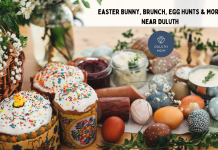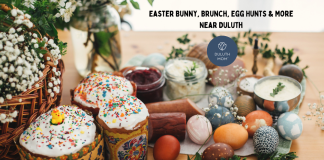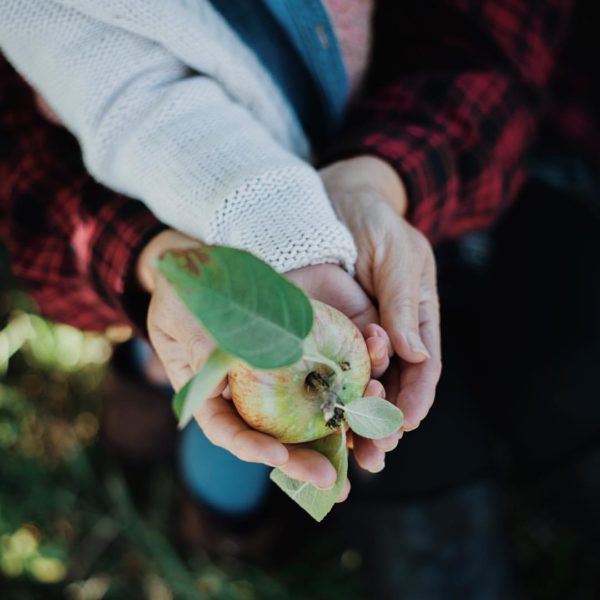My family is Armenian. My family is big. And loud. And animated.
We talk with our hands, we roll dolma with our hands, we sip chai and play backgammon with our hands. We scream at each other, chase each other around the living room, and then when it’s all over we make soorj and sit out on the balcony into the wee hours of the morning.
We don’t shy away from emotions and we aren’t afraid of conflict.
I am a patchwork quilt of cultures, experiences, and expectations. While I feel so deeply rooted in the foreign soil of my ancestors, I was raised in America. I had to become a social chameleon, and likely so will my children.
My daughter is already more Minnesotan–more Midwestern–than I can ever hope to be. She’s too small to have learned the difference between “no yeah” and “yeah no” or how to make a hot dish but she has her dad’s furrowed Finnish brow and she can eat cheese like nothing I’ve ever seen.
But I want her to share some of my Armenian roots, too, some of my family’s history and culture. In the interest of keeping her at least a little bit Bolsa Hye, this is a small sampling of the traditions we’ve shared with her or plan to share with her as she grows.
 Agra Hadig
Agra Hadig
An Armenian tradition to commemorate a baby’s first tooth. The baby is placed in front of various objects, each representing a different occupation, and whichever object the baby chooses first indicates their future profession. Then we celebrate with a porridge of barley, fruits, nuts, and cinnamon. When we did this, she chose a pen, so get ready for her lengthy exposé on the truth behind bubble bath (and why mom should always buy the bubbliest).
Dardar Sofrası
This is a Turkish tradition where we gather to light candles and make wishes. In my family we typically use tea candles and write our wish on the bottom. When one of your wishes comes true, you host the next Dardar Sofrasi at your home and serve bulgur or pilaf and lentils. The new wish candles are lit and then blown out, whereas the old wishes that have come true are left to burn themselves out over the course of the meal. We did this recently to celebrate one big wish coming true–the birth of our daughter; having our sweet girl safe and sound.
Vartavar
Vartavar (or Vardavar) is an Armenian holiday originally to celebrate the Pagan goddess of water and fertility, Astghik. Nowadays, though, it’s basically a big water fight. When I visited Armenia in 2016 we flew in on Vartavar and while we were rolling our suitcases from the bus to the hotel we were getting splashed, sprayed, and soaked. People of all ages participate–kids run around the streets with full water bottles, teens and young adults have super soakers or spray bottles, old women dump water onto unsuspecting passers-by from their balconies. The fountain in the middle of Yerevan becomes a free-for-all. While this isn’t celebrated in Duluth, my family always finds an opportunity for some water play on Vartavar. It’s celebrated 98 days after Easter–next year it’ll be July 11th, 2021. This is one of my favorite traditions, and I already know my little water baby is going to love it.
 Terms to Know
Terms to Know
Dolma- Stuffed or rolled vegetables such as peppers, tomatoes, zucchinis, grape leaves, or cabbage filled with rice, onions, spices, and sometimes meat. Rolled dolmas (grape leaf or cabbage) are typically served cold in olive oil, whereas stuffed vegetable dolmas are usually served warm with a yogurt sauce.
Chai- Turkish chai is a black tea blend brewed in a double-level kettle, in which the bottom kettle holds only water and the top is tea leaves and water so that you can adjust how strong you take your tea. Typically served in a small hourglass-shaped cup.
Soorj- Also known as Turkish coffee, Armenian coffee, or Greek coffee. Finely ground coffee boiled in water and not strained. Served in a very small coffee cup.
Bolsa Hye- Armenian from Istanbul. In our case, my family was already in Istanbul for generations before the genocide and still lives there today. There is a very large Armenian population in Istanbul and we have our own unique dialect and culture.
Bulgur- A type of cracked wheat, in this context cooked with onions and tomato paste.
Pilaf- Rice cooked with broth and spices, typically also with orzo.










